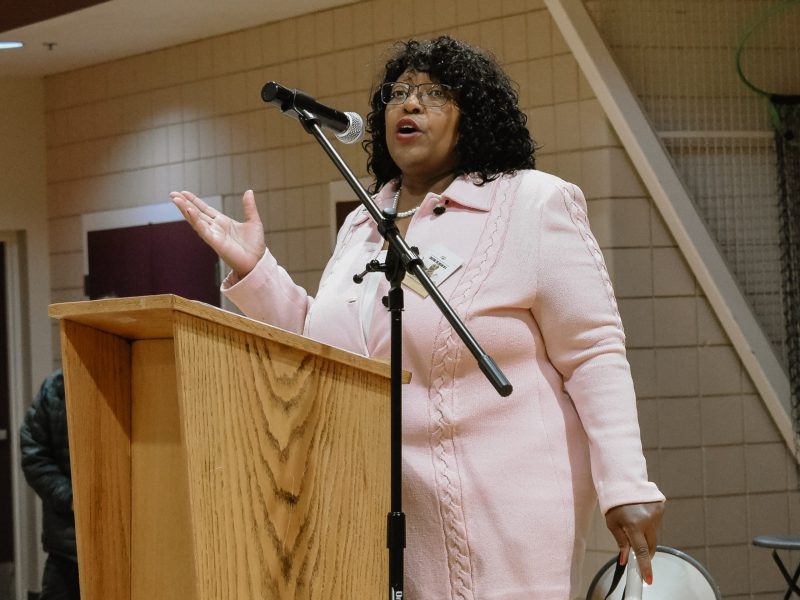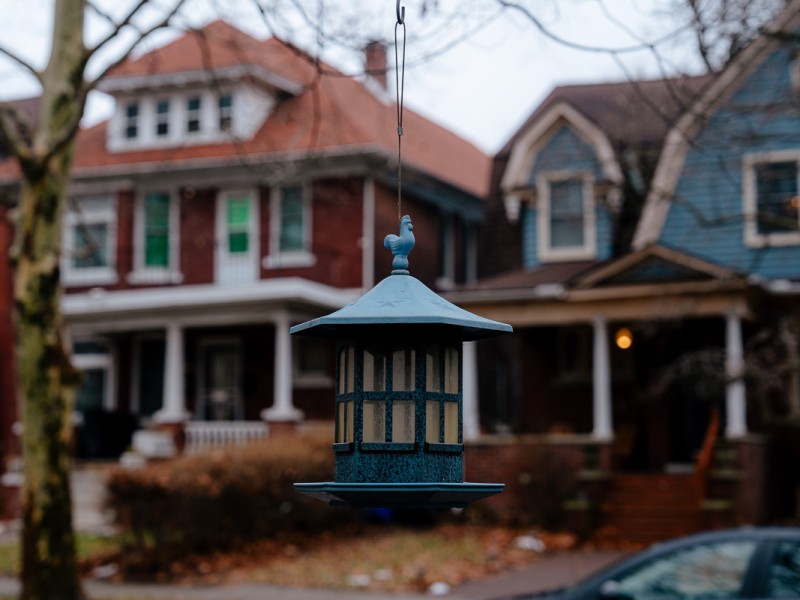Partner Partner Content From Traverse City to Indiana: How Build Institute programming reaches farther than just Detroit
“Organizations like Build help level the playing field,” says CEO of Economic Impact Catalyst David Ponraj. Although its headquarters are in the Corktown neighborhood of Detroit, Build Institute’s reach is much wider, providing models of how to uplift microentrepreneurs across Northern Michigan, and even out-of-state in places like Indiana.
This is part of a reporting series supported by Build Institute.
Despite having a very local home base, with its headquarters in the Corktown neighborhood of Detroit, Build Institute’s impact reaches much further. The nurturing community and developmental resources and programming it provides to microentrepreneurs also takes place in neighborhoods in Northern Michigan, and even in Indiana.
Build Institute’s four-pronged mission of Learn, Launch, Fund, and Connect, is serving communities outside of Detroit and the region well. President and CEO Regina Ann Campbell says the initial vision has always been to expand and scale Build Institute where like-minded perspective is. Other cities outside of the region and state have utilized Build Institute’s templates to help foster their individual microentrepreneur communities. While Campbell refers to Detroit as the superhub, other partners are thought of as spokes or nodes, which benefit from the licensed education and programming.
“A superhub is a really quick, easy way for entrepreneurs to access the resources, all of the things necessary to launch or grow in four primary areas: capital, talent, programs, and our space,” Campbell says. “We are a superhub that is also able to have external partners and Build cities that can be a part of our data and analytics piece.
Campbell says being a superhub is a strong, resilient model able to reach many audiences and types of businesses across ranging demographics and locales.
Fort Wayne flourishes
“In 2019, Build went to Ft. Wayne, IN, and that was one of the first external hubs, Campbell says. “It’s been doing really well,” Campbell says. “In 2019, they also negotiated to go to Bradenton, FL, so we had our first Build Cities class in 2020.”

Nikeshia Fomby, community development specialist at SEED Fort Wayne, works on project planning and funding, preparing grants, and develops comprehensive work plans for partnering organizations. SEED stands for Summit City Entrepreneur and Enterprise District, a partnership with the City of Fort Wayne, IN. The 501(c)3 aims to serve as an incubation space to help entrepreneurs start and scale their businesses.
Fomby says their mission aligns well with Build Institute’s goals, making them an appealing partner.
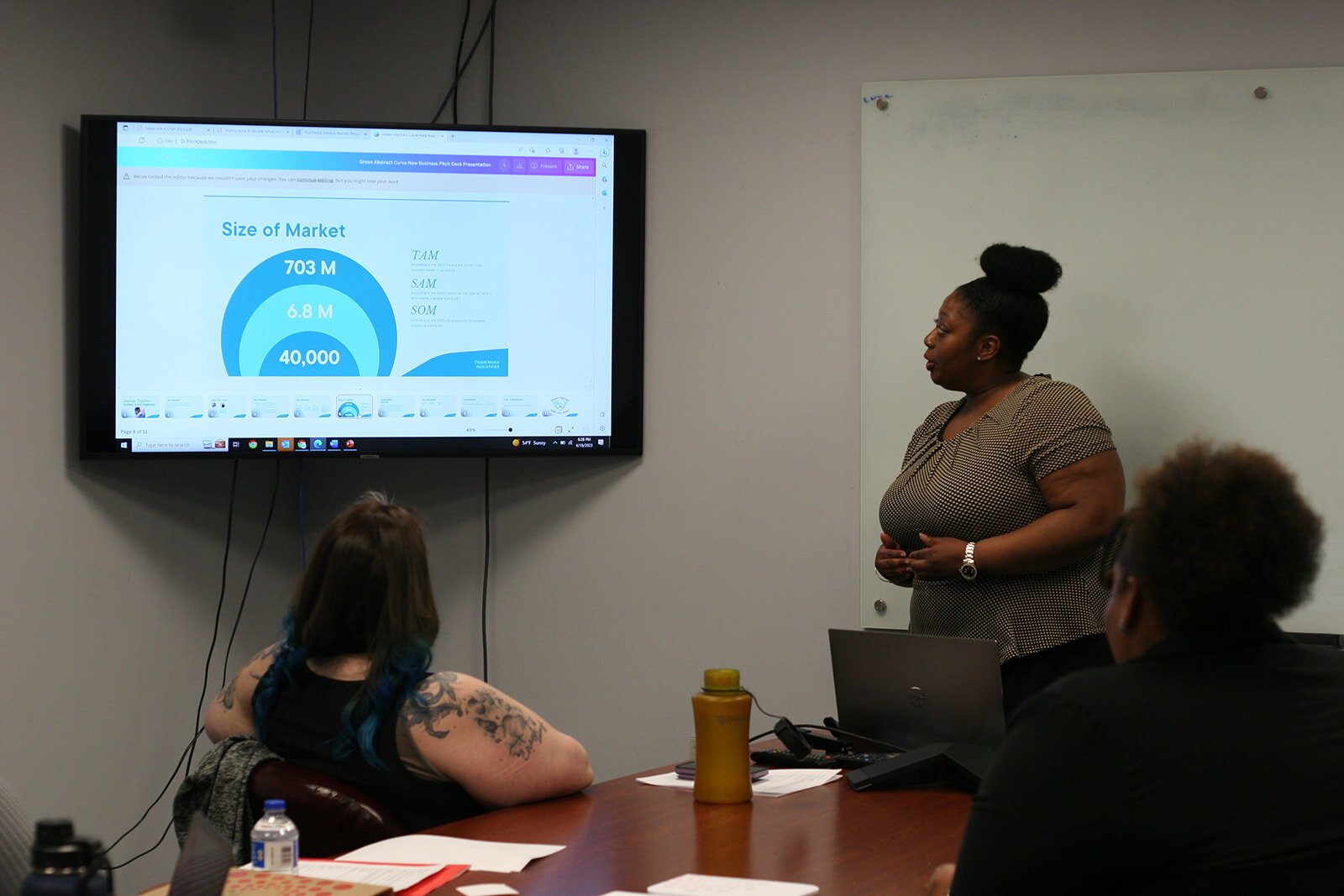
“The Build Institute is a family of entrepreneurs that seek to change the culture of what a ‘typical’ entrepreneur looks like,” she says. “The diversity in people, background, business, and education blend to create a unique and budding vibrant community. Build Institute gives the foundation for a successful business to each participant while providing support to business development and implementation. Entrepreneurs don’t fail because they are unable to do the work required to be a viable business, but because they lack the information necessary to become sustainable and that is where Build Institute fills the gap.”
Their working relationship began back in 2019. “While working to meet the needs of the community we serve, previous leaders of SEED Fort Wayne sought out a recognized program, and Build Institute in Detroit fit the need,” Fomby says.
SEED Fort Wayne uses the Build Basic Course, and benefits from the informative workshops and resources, inspiring the organization to increase mentorship for applicants.

“Build is an amazing program,” Fomby says. “At its very core, it has inspired SEED Fort Wayne and our Build Institute entrepreneur course to explore new and innovative ways to reach the community. The expanded vision is necessary to continue to grow small business and entrepreneur spirit in the City of Fort Wayne.”
This partnership has led to measurable success, especially in the small business/microentrepreneur community, the largest employment sector in the city of Fort Wayne, according to Fomby.
“Build Institute has graduated more than 300 entrepreneurs, 58 have opened brick-and-mortar locations, and more than 200 have sold or manufactured a product or service,” she says. “We measure success using a defined and tracked metric system. While numbers are a strategic method to show progression, success could be an entrepreneur finalizing their business plan or reaching a mentor to take their business from an idea to an actual viable source of income. So, we define success in a variety of ways.”
Thomby hopes to see more economic growth and development in Fort Wayne, and is working to increase collaborative efforts, networking activities, business symposiums, and mentorship programs for small business owners and entrepreneurs within her role at SEED.
Traverse City launching
Build Institute plans to launch classes in October with their latest partner, Traverse City.
“We’re going to be focusing initially on food-based businesses. The particular partner and location there is grounded in the food economy, and that’s what we’ll be focusing our Build Basics courses on.”
Executive Director of Grand Traverse Foodshed Alliance, Anne Schneider, works with the 501(c)3 nonprofit in Traverse City, to help strengthen local food markets in the region.
Schneider says the goal is to increase access to, demand for, and consumption of safe, healthy, local food, and to improve the viability of small-scale farms to benefit consumers, farmers, and the collective community.
She says their organization’s goal aligns well with Build Institute’s mission, both aiming to enhance entrepreneurial success and providing equitable support systems for ideators and business owners. In July 2023, their partnership began, with funding from the Rotary Charities Assets for Thriving Communities Grant.
“The new partnership with the Build Institute will provide the Grand Traverse Foodshed Alliance (GTFA) with the tools to foster a startup food culture and enhance entrepreneurship success in the Grand Traverse region,” Schneider says. “The funding will enable Grand Traverse Foodshed Alliance to leverage the Build Institute’s expertise and resources to efficiently set up the systems, outreach, and program activities to lay the foundation to launch and scale a proven incubator program framework that will be tailored specifically to the needs of our community.”
After a three-year planning process for a food incubator program and the NoBo Mrkt, an innovative food hall, Schneider says the organization quickly realized their region needed a plan for reducing barriers when it came to healthy, accessible food sources.
“Build Institute is a champion of the under-resourced and under-serviced entrepreneurs,” Schneider says. “Entering into a food business is at best risky when you have capital and knowledge, and not accessible to the vast majority of our community members in our rural region. Based on our work with individuals who have been historically left out of economic systems and networks, like ALICE households, and tribal and farm workers, GTFA understands that the needs of our participants will be differentiated by the function of how long they have been engaged in our local food systems.”
As the food incubator pilot program prepares to launch, capturing input from stakeholders is crucial, says Schneider. Formal and informal conversations with struggling food entrepreneurs, hospitality workers, pop-up businesses, food truck operators, and culinary students have provided valuable input. Some have expressed gratitude and excitement for the non-profit component of NoBo Mrkt.
Brad Kik, co-founder and co-director of Crosshatch Center for Art & Ecology, says the project will help to support local area farmers. It’s an extra level of support that’s been lacking, Kik says.
“The Nobo Mrkt plan to support restaurant and other food service entrepreneurs is much needed, and closes the loop on our region’s ability to support the entire farm-to-table pipeline,” Kik says. “The Crosshatch Microloan occasionally receives applications from food service entrepreneurs — new food trucks, restaurant concepts, or high-level value-added food processors like cheesemakers. We’ve often reflected that the community could use more specific systems of support for these businesses, who have unique challenges.”
Starting out by listening
In order to lay the groundwork for this Build Cities model for success, research, and evaluation of each community is necessary, says Campbell. Part of the process before securing partner cities is research into the individual community and their needs. Each partner’s ecosystem of microentrepreneurs might require different needs, whether they’re urban, rural, tied to academia, etc.
Campbell says staff travels to potential partner cities, having important conversations around alignment, mission, and vision to get a sense of their unique needs and intended focus.
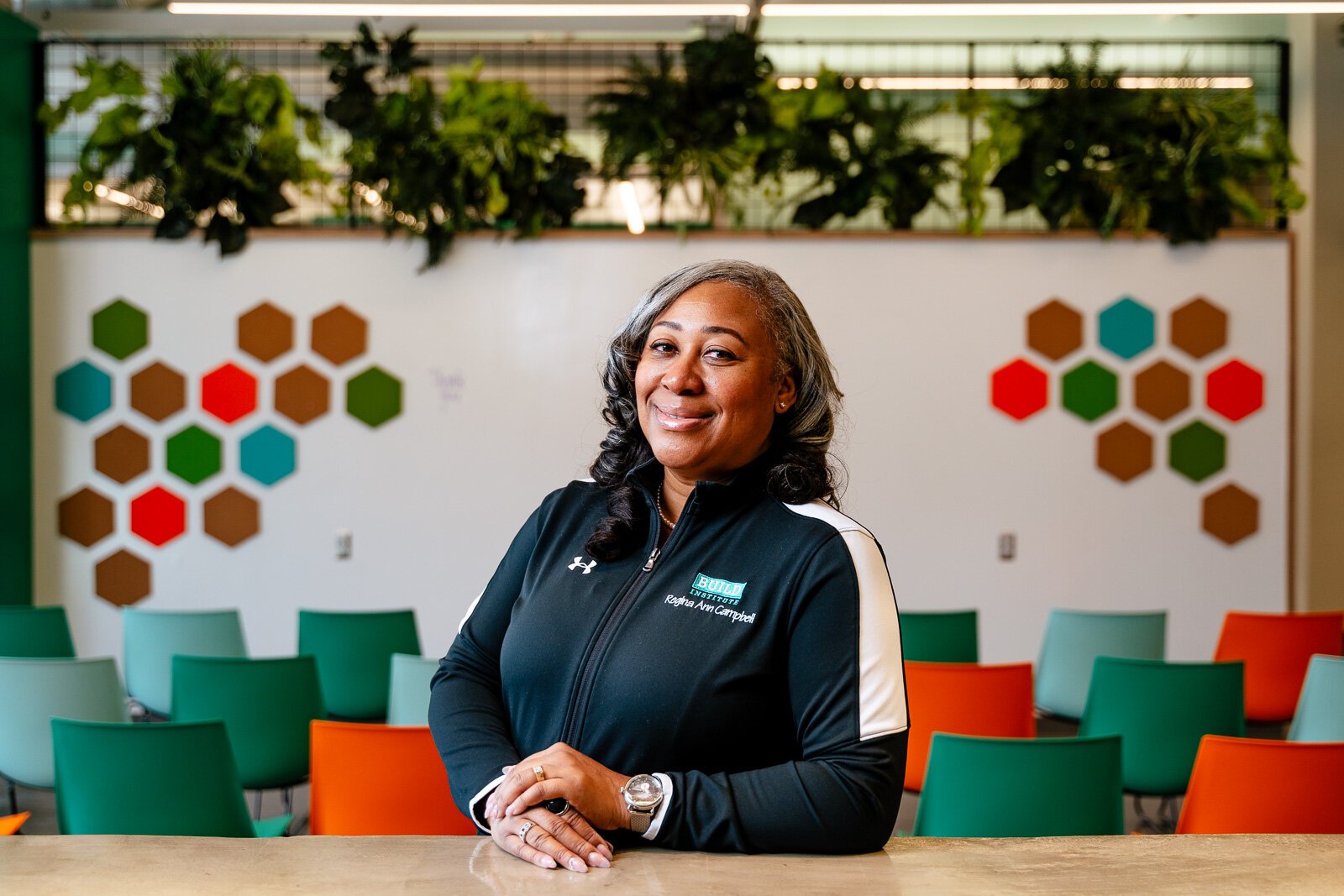
Building relationships is on the front end, says Campbell. “From there, we get to work the actual work – training the trainers, and preparing them to have their first classes. Because we have licensed materials and templates, which we pass onto the Build Cities, we go through a process of finding what all of our information and helping them around their design,” she says.
Although the focus remains on microentrepreneurs, and the ideation stage, Campbell says each community is different. Fort Wayne has different needs than Detroit. Even suburban neighborhoods very close by might have different needs than urban Detroit.
“Every community is different, so they really drive what the rollout and launch will look like,” she says. “We consider ourselves as the advisors to help them make sure it is built and co-designed in a way that is authentic for those that they serve in their community. It really varies on what the different needs are based on who the Build Cities’ partner is.”
Tracking success
Campbell says part of the lucrative partnership Build Institute provides to cities, organizations, and partners is their technology and data analytics. CEO of Economic Impact Catalyst, David Ponraj, works with clients, particularly small businesses, to get access to resources in their communities. The organization has been able to use Build Detroit’s success as a template for cities outside of the state.
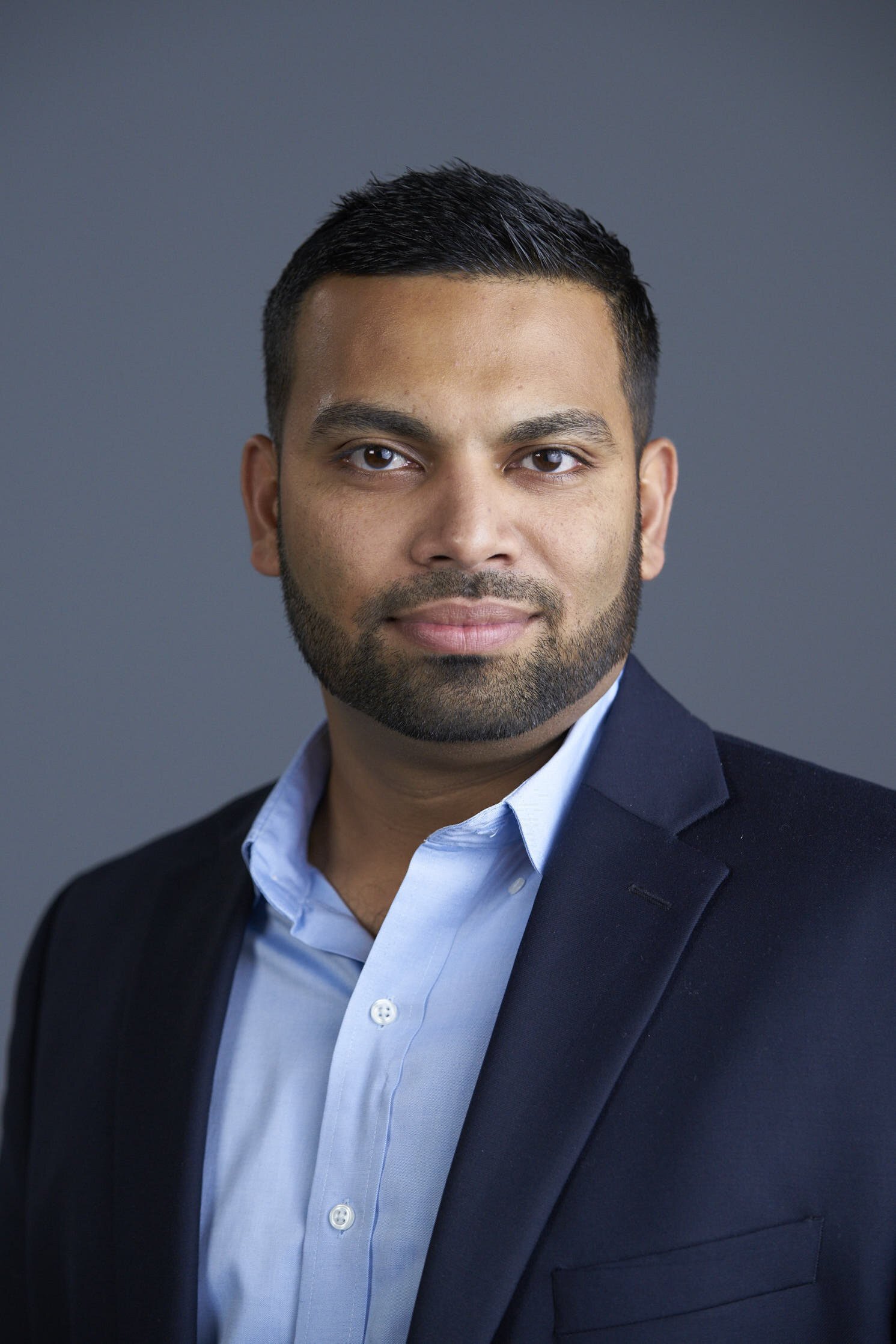
“We do that by providing our clients with technology solutions, along with market insights and access to data analytics that can help them better understand who they serve. It can help them be able to better provide those services,” Ponraj says.
The Economic Impact Catalyst has been working with Build Institute for close to three years now. “We help Build Institute with a technology platform that allows them to better serve their constituents, who are small business owners, run several programs on our platform that allows Build to measure programming, and report back,” Ponraj says.
As a small business owner himself, Ponraj says this work is crucial for others in similar situations, many of who are underrepresented.
“I’ve realized how incredibly difficult it is to start a business,” he says. “Organizations like Build Institute provide a critical set of resources that make it easy for business owners to be able to find the exact resource they need, be it capital, or technical assistance, access to a mentor, etc. That can then help businesses like ours break through challenges that might otherwise force them to shut down, or make it harder to start.
“This work is meaningful because it helps solve a very critical problem in communities today,” he says. “Most people that start businesses today have come from a challenging background. It could be somebody that is an immigrant founder, or somebody that comes from an underrepresented community. When you start at that point, you already have a disadvantage in that you don’t have the same access that another community might have. Organizations like Build help level the playing field.”
Within his role, Ponraj has witnessed growth in small businesses from partnering with Build, including with his own business.
“We’ve been able to bring Build Institute’s resources outside of Detroit, into other communities we serve,” he says. “We have a monthly community practice event where we showcase communities like Detroit and the work Build is doing to our national audience. We are in many states across the U.S.”
Working in cities across Florida, Mississippi, Washington, Missouri, Colorado, Georgia, and Ohio, Ponraj says his clients are looking for best-in-class solutions to serve their individual communities.
“What Build Institute has done has significantly helped other communities learn about how they can better provide small business support,” he says. “All of these cities use our solutions to better serve their small business communities.”
Conversations for future scale partnerships are in the works for more Build cities, including talks of Dearborn, Romulus, and outside of the state, in Chicago and Memphis.


